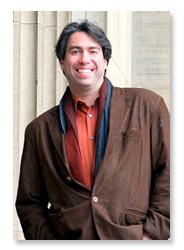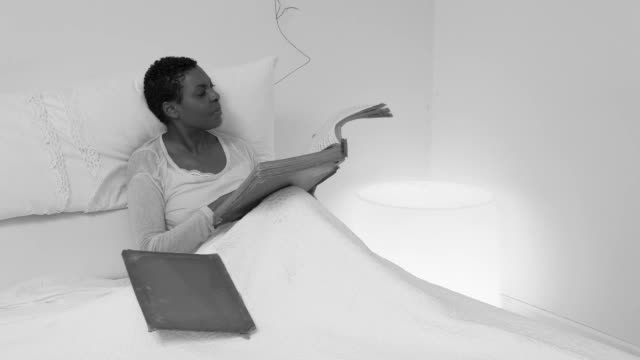
GRAMMY®-nominated Julian Wachner is one of North America’s most exciting and versatile musicians. A prolific composer with over 80 works in his catalogue, Wachner’s music has been variously described as “jazzy, energetic, and ingenious” (Boston Globe), having “splendor, dignity, outstanding tone combinations, sophisticated chromatic exploration…a rich backdrop, wavering between a glimmer and a tingle…” (La Scena Musicale), being “a compendium of surprises” (Washington Post), and as “bold and atmospheric”, having “an imaginative flair for allusive text setting” and noted for “the silken complexities of his harmonies” (New York Times.) The American Record Guide noted that “Wachner is both an unapologetic modernist and an open-minded eclectic—his music has something to say.” In 2010, he made New York City Opera history when he was selected as both conductor and composer at the company’s annual VOX festival of contemporary opera featuring Wachner’s 2006 French-Canadian opera Evangeline Revisited.
Wachner’s performance collaborations have included those with the Lincoln Center Festival, BAM Next Wave Festival, Juilliard Opera Theatre, The New York Philharmonic, Bang on a Can All-Stars, The Rolling Stones, New York City Opera, Philharmonia Baroque, Prototype Festival, Hong Kong Philharmonic, Music Academy of the West, Portland Baroque, Carnegie Hall, Trondheim Chamber Music Festival, Trinity Wall Street, The Washington Chorus, Beth Morrison Projects, Philadelphia Orchestra, Juilliard 415, Wisconsin Chamber Orchestra, Spoleto Festival USA, the Handel and Haydn Society, Opera McGill, Glimmerglass Opera, Hawaii Opera Theater, the Boston Pops, and the Montreal, Pacific, Calgary, Jacksonville, Portland, Madison and Pittsburgh Symphonies.
Wachner’s performances inspire uncommon praise. The New York Times pronounced his Trinity Wall Street début “superbly performed” and noted that the ensemble’s annual Lincoln Center presentation of Handel’s Messiah was “led with both fearsome energy and delicate grace…a model of what is musically and emotionally possible with this venerable score.” Of his interpretation of Bach’s St. Matthew Passion, according to the Boston Globe, “there was genius here and no mistaking it.” Anne Midgette, of The Washington Post, declared recent Wagner and Verdi performances “exhilarating,” commenting: “Julian Wachner knows how to draw maximum drama from a score,” and noted that he was “emphatic and theatrical and so at home in opera that he could bring out the requisite sense of drama.”
An award-winning organist and improvisateur, Wachner’s solo recital at the Spoleto Festival USA featured an improvised finale that inspired one reviewer to conclude: “This stupefying wizardry was the hit of the recital, and it had to be heard to be believed” (Post and Courier, South Carolina). As a concert pianist, in his Kennedy Center Rachmaninoff performance, the Washington Post noted “Wachner dazzled with some bravura keyboard work, both in the rhapsodic accompaniments to the songs and…in the highly virtuosic transcription of the Dances.”
Born in Hollywood, California, Julian Wachner began his musical education at age four with cello and piano lessons at the University of Southern California; was a boy chorister at St. Paul’s Cathedral in Buffalo, New York, and studied composition and improvisation under Dr. Gerre Hancock while enrolled at the St. Thomas Choir School in New York City. He earned the Doctor of Musical Arts degree from Boston University’s School for the Arts where his teachers included David Hoose and Lukas Foss.
In 1990, at the age of twenty, he was appointed university organist and music director of Boston University’s Marsh Chapel where he initiated an annual festival of contemporary music commissioning and premièring hundreds of works by emerging composers and formed the Boston Bach Ensemble, a period-instrument orchestra and choir. He earned the Fellowship degree from the American Guild of Organists and won the S. Lewis Elmer Award for the highest national scores on the Guild’s associate exam. During his tenure at Marsh Chapel, he also served as Assistant Professor of Sacred Music at the Boston University School of Theology teaching courses in liturgy, Bach studies, music theory, organ improvisation and conducting. While at Boston University, Wachner began a long association with Tanglewood serving on the teaching staff of the Young Artists Vocal, Orchestral and Composition Programs, the latter of which he was the director from 1999–2002. Richard Dyer, of the Boston Globe labelled Wachner “the busiest composer in Boston” and “indefatigable.”
From 2001–2011 Wachner served as Associate Professor of Music and principal conductor of Opera McGill at the Schulich School of Music at McGill University where he conducted over 40 operatic productions, directed programs with the McGill Symphony and Contemporary Music Ensemble and founded and directed the Schulich School Singers, McGill’s flagship chamber choir. While in Montréal, Wachner founded the Bach-Academie de Montréal and served as Director of Music of the internationally recognised Church of St. Andrew and St. Paul leading a robust program of concert and liturgical performances. Also while in Montréal, Wachner received commissions and premières for some of his most important works including his Tryptich for Organ and Orchestra, Psalm Cycle III, and his full-length opera Evangeline Revisited.
In 2011 Wachner relocated to his childhood home of New York City where he enjoys an active and varied career with frequent appearances in all of the city’s important venues, and consistent positive mentions in the major press. He is currently music director of the GRAMMY® award-winning Washington Chorus and is Director of Music and the Arts at Trinity Wall Street.
| Title | |
| PRESTINI, P.: Oceanic Verses (Wachner) | |

|
PRESTINI, P.: Oceanic Verses (Wachner)
Composer:
Prestini, Paola
Artists:
Burchett, Christopher -- Davis, Helga -- DeCoda -- Plitmann, Hila -- Prima, Claudio -- Trinity Wall Street Choir -- Wachner, Julian
Label/Producer: VIA Records |
